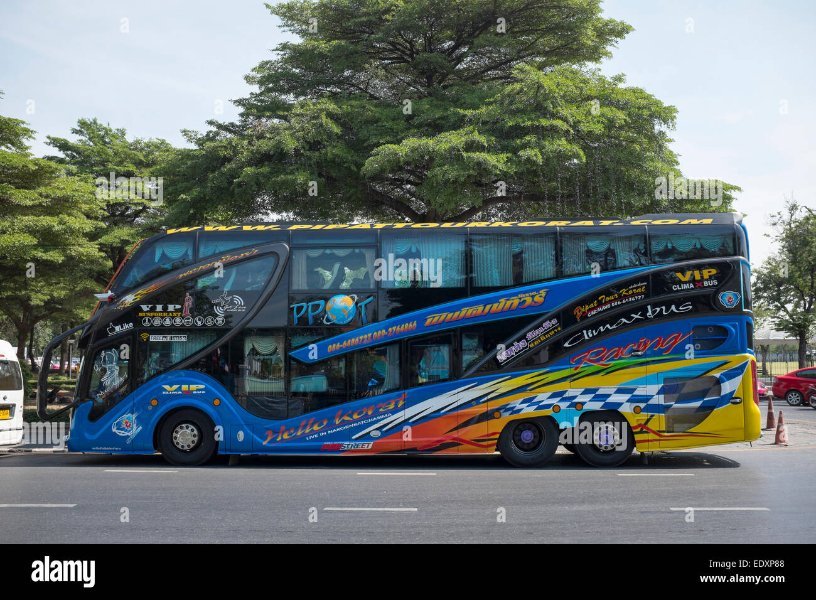
kwilco
Advanced Member-
Posts
5,501 -
Joined
-
Last visited
Content Type
Events
Forums
Downloads
Quizzes
Gallery
Blogs
Everything posted by kwilco
-
Why so many conspiracy theorists and what to do about them
kwilco replied to kwilco's topic in Off the beaten track
It seems the US is on the brink of measles becoming endemic again. They are facing a serious public health risk. Measles, once eradicated in 2000, is on the verge of becoming endemic again due to falling vaccination rates. So far in 2025, measles cases have surged 180% compared to the whole of 2024. It’s already marking the second-highest annual case count in 25 years, according to the CDC. A new study published in Journal of the American Medical Association (JAMA) projects that at current MMR (measles-mumps-rubella) vaccination levels, the US could see over 850,000 measles cases over the next 25 years. A 10% drop in vaccination could lead to 11 million cases. More extreme declines (50%) could bring back measles, rubella, and even polio—with staggering health impacts including hundreds of thousands of deaths and hospitalizations. In Texas alone the current outbreak has seen over 600 cases and 2 deaths, among unvaccinated individuals in tight-knit communities. Researchers warn that just a 5% drop in vaccination rates could push measles into widespread resurgence—emphasizing that even small declines have outsized impacts. The main thing to bear in mind is that vaccination rates are slipping, and the consequences could be catastrophic. Public health experts stress that reversing this trend is crucial to prevent a return of preventable, deadly diseases. -
Crime Russian Tour Guides in Hot Water Amid Phuket Police Sting
kwilco replied to webfact's topic in Phuket News
Tour guides, small businesses, gyms...so many undocumented workers and not just Russian, many Brits are involved. -
Travel Thailand's Chinese Tourism Faces Crisis as Arrivals Plummet
kwilco replied to snoop1130's topic in Thailand News
the entitlement of westerners who think Thai is just for them! It needs fewer tourists who think their skin colour makes them more welcome than others. -
Just saying “it’s a hill” is facile in the extreme—it’s not just a hill. It’s a long, winding stretch of engineered road cutting through a steep mountain range, carrying heavy volumes of mixed traffic daily. This isn’t nature—it’s infrastructure. And infrastructure requires intelligent design, proper maintenance, and accountability. Let’s be honest: The road surface is disgraceful—polished black, dangerously worn, with little to no grip. That shine you see? That’s where rubber meets no resistance. It’s a skating rink for 40-ton vehicles. Run-off areas, barriers, signs? Many are there—but badly positioned, poorly maintained, or ineffective by design. Slapping in infrastructure isn’t enough—it has to be done correctly, or it’s worse than nothing. It gives a false sense of security. The vehicles themselves are a massive part of the problem. Many are poorly built in unregulated local workshops, with little engineering oversight. Maintenance is minimal, safety checks rare, and corners are cut to chase profit. Let’s be clear: most drivers aren’t trained engineers—they’re handed ticking time bombs and told to manage. A truck with weak brakes, bald tires, and an overloaded trailer on that road isn’t a vehicle—it’s a weapon. This is not a mystery. It’s a textbook case of systemic failure—from road surface to vehicle standards to enforcement. If “some drivers” are failing, then the system has failed all drivers by making the margin for error so razor thin. The idea that planting a sign will solve thw situation is simply so risible it reflects more on your lack of understanding than anything else
-
Travel Thailand's Chinese Tourism Faces Crisis as Arrivals Plummet
kwilco replied to snoop1130's topic in Thailand News
Wow. Racism, elitism, and ignorance all rolled into one smug little package. Let’s get one thing straight: Thailand doesn’t revolve around your colonial fantasy where only white tourists are "acceptable." Chinese, Indian, and Russian tourists bring billions into the Thai economy, just like Westerners do — often more, in fact. They come for the same reasons everyone else does: the beauty, the culture, the people, the food. Not because “other countries don’t want them” — that’s just a lazy, bigoted trope. What you're spewing isn’t travel insight — it’s outdated white supremacist nonsense disguised as opinion. You don't speak for Thailand, and judging by your exit plan, the country won't exactly crumble when you pack up your entitlement and leave. Thailand doesn’t need fewer Chinese, Indian, or Russian tourists. It needs fewer tourists who think their skin color makes them more welcome than others. -
Travel Thailand's Chinese Tourism Faces Crisis as Arrivals Plummet
kwilco replied to snoop1130's topic in Thailand News
Your read wrong, it has ALWAYS been around 20% of GDP. -
Travel Thailand's Chinese Tourism Faces Crisis as Arrivals Plummet
kwilco replied to snoop1130's topic in Thailand News
Before Covid, Chinese tourists were said to account for nearly half of 35 million - so that's one hell of a drop. -
so you don't understand statistics? or you think the road has some supernatural quaity? - Sure, any fool knows most drivers make it through — just like most planes land safely. But when crashes cluster in one spot, it’s not a coincidence, it’s a red flag. Good roads are designed to forgive mistakes, not punish them with fatalities. Blaming tired or undertrained drivers in a system that sets them up to fail doesn’t solve the problem — it just excuses it." Or in simple terms - If a road keeps killing people, it's not a test — it's a trap. Blaming drivers while ignoring crap design is like blaming flood victims for not swimming better.
-
Are Trump's intentions positive, or is he just unhinged?
kwilco replied to spidermike007's topic in Political Soapbox
Seriously? - that's a rhetorical question? -
Are Trump's intentions positive, or is he just unhinged?
kwilco replied to spidermike007's topic in Political Soapbox
Americans showed be VERY concerned about Trump - he has rendered the county one of the world's most unpopular along with N.Korea and Russia and is riding rough-shod over the constitution.. -
quite apart from the smoke, they are "home built" - they look beautiful and the insides are glorious but they are not built for safety - they are sheet metal panels on timber frame on a old or second-handchassis that is often lengthened. They are meant to pass a ?tilt test" but enforcement is slack. Passengers are encouraged to mover around like they do on a plane. Most are converted to run on NGP system which is less efficient than straight diesel - hence the smoke. A few years ago I did a 3 day tour in one courtesy of a customs and excise dept.... it was fantastic, but the bus itself was unnerving.
-
Why so many conspiracy theorists and what to do about them
kwilco replied to kwilco's topic in Off the beaten track
It seems that people don't actually know how vaccines (and antibiotics) work - they use "natural" processes of the body - people love to make a fake difference between natural and some other category - they never explain the difference though. -
Why so many conspiracy theorists and what to do about them
kwilco replied to kwilco's topic in Off the beaten track
I blame Mulder and Scully… “The truth is out there.” But so are the stories we want to believe. Conspiracy theories aren’t new—they’ve always been around. Ancient Rome had rumours of secret cults. The Middle Ages blamed plagues on shadowy plots. Fire of London had Riots blaming foreigners. In the 20th century, it was aliens, secret societies, and the Bermuda Triangle swallowing ships whole. “Chariots of the Gods” sold the idea that ancient structures meant aliens were behind it all—not brilliant human engineering. Why? Because a mystery feels more thrilling than facts. And blaming the unknown feels better than admitting we just don’t know everything. These theories survive not because they’re proven—but because they feel good: They turn confusion into clarity, they make believers feel special, “in the know", they replace chaos with a story. But here’s the challenge: If conspiracy theories have always existed—even before modern science, the internet, or government intelligence—is it possible we’re repeating the same pattern? Creating myths to feel in control? Even Mulder had to face dead ends. And Scully kept asking the hard questions. So ask yourself: Are you actually chasing the truth? Or just an need for a version of a very old fantasy? -
Immigration Thai PM Tackles Overstaying Tourists with Visa-Free Scheme Revamp
kwilco replied to webfact's topic in Thailand News
can you be more specific? -
Immigration Thai PM Tackles Overstaying Tourists with Visa-Free Scheme Revamp
kwilco replied to webfact's topic in Thailand News
THat's actually non-news. Any country checks visitors for visa/entry and stay abuse..... what would be news is any changes but they haven't said anything about that. 60 day concerns re-entry concerns TDAC - hasn't been mentioned at all recently. and the ETA which has either been postponed or cancelled. ..but no news of any of this. -
Why so many conspiracy theorists and what to do about them
kwilco replied to kwilco's topic in Off the beaten track
QED! -
Why so many conspiracy theorists and what to do about them
kwilco replied to kwilco's topic in Off the beaten track
So where is you evidence? Your figures???? -
Why so many conspiracy theorists and what to do about them
kwilco replied to kwilco's topic in Off the beaten track
All except the dead people. -
Why so many conspiracy theorists and what to do about them
kwilco replied to kwilco's topic in Off the beaten track
But those are classic conspiracy theory tropes and language. Di you know th initial researsh program was set up incorporation with the USA? Do you think it was intentional? -
Collision reports are a vital part of road safety measures and are usually part of the public domain. – have you ever seen anything approaching this in Thailand? Proper collision investigation is vital for improving road safety, but in Thailand, the process is often chaotic and ineffective. In contrast to best practices seen in countries like the UK—where scenes are secured, evidence is carefully preserved, and trained specialists conduct in-depth analyses—Thailand’s investigations are frequently left to under-trained local police with minimal equipment or methodology. A standard investigative approach follows the METHANE protocol: • Make the scene safe • Establish the facts • Treat the injured • Hazards and risks • Access and egress • Notification and Evidence preservation Sadly, in Thailand, roads are rarely closed off, evidence is quickly lost, and investigations rely heavily on unreliable eyewitness accounts and superficial assessments. There’s minimal use of advanced technology like 3D scanning, drones, or data extraction from vehicles. As a result, accident reports are rushed, vague, and lack actionable insight. Road hazards remain unaddressed, and the opportunity to learn from each incident is missed. Worse, public discussion often devolves into uninformed, biased commentary rather than constructive analysis. Thailand has one of the highest road death rates globally—a fact unlikely to change without a shift toward professional, evidence-based collision investigation.
-
I find this comment quite outdated and overly simplistic. It completely ignores the broader context and real pressures that many drivers face, particularly those working long hours just to make a living. it makes assumptions about the causes of accidents—without referring to the actual crash report—that are speculative and uninformed. Also, sweeping generalisations about Thai drivers being under the influence is not only inaccurate, but, offensive. It unfairly paints an entire group with a negative brush based on assumptions rather than facts. If we want to talk about improving road safety, we should be addressing systemic issues—like working conditions, vehicle regulation enforcement, and infrastructure improvements—alongside driver behavior, not just laying blame in one direction. Let’s focus on facts, not stereotypes.
-
Every time there's a crash like this, the same old tired, ignorant comments appear—blaming the driver, mocking Thai people, and pretending to be experts on road safety. There’s no proper investigation, no real crash report—just assumptions and casual racism. Drivers here work brutal hours in unsafe vehicles on dangerous roads, with zero systemic support. This isn’t about one man’s mistake. It’s a failure of infrastructure, enforcement, and standards. If you can't offer empathy or informed insight, say nothing.










